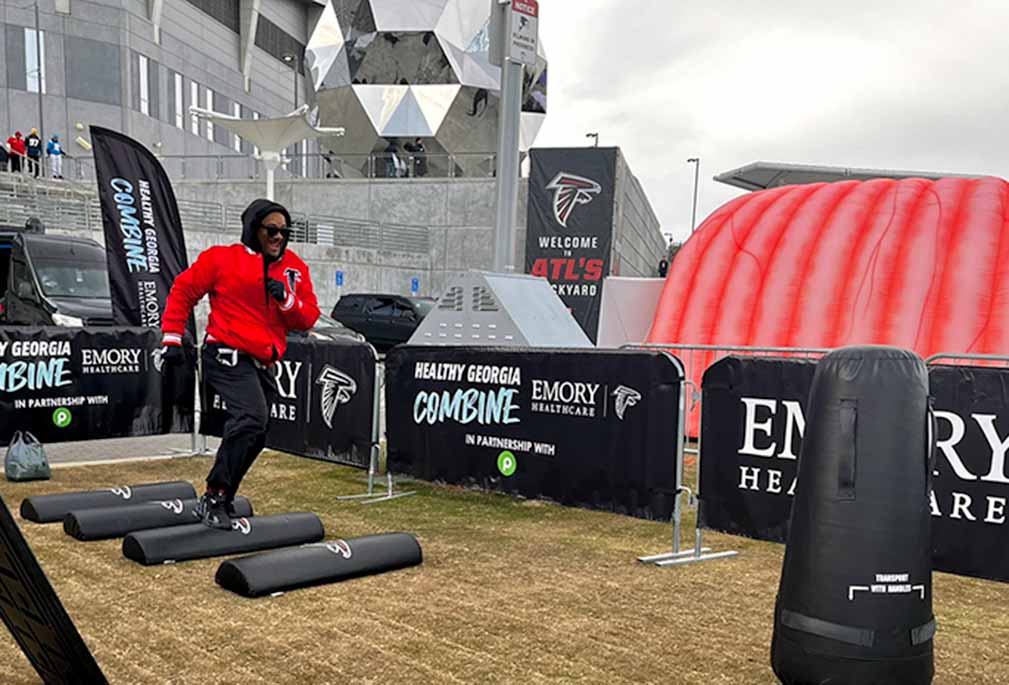5. Practice Running Recovery: Tools Once Reserved for Pros, Now in Your Gear Bag
Thanks to wider access and affordable models, tools once exclusive to professional athletes are now part of the everyday runner's routine. Compression boots, massage guns, cold plunges, and visits to cryotherapy or hyperbaric oxygen chambers are increasingly common among dedicated community runners. These recovery technologies help reduce soreness, improve circulation and allow for more consistent training cycles.
"You don’t need to be elite to benefit from the same recovery tools," said Harness. "But you also need to determine when those tools aren’t enough. Start with what you can do at home, but don’t wait too long to see a professional if something still doesn’t feel right."
Early evaluation can prevent long-term injuries by addressing biomechanical issues and muscular imbalances before they worsen.
6. Train and Recover Smarter with Emory’s Running Medicine Experts
If you want to run like a pro, it’s a good idea to have a professional health care team behind you. At Emory Sports Medicine Center, clinical expertise meets real-world athletic insight to help runners of all levels perform at their best.
The multidisciplinary team includes:
- Orthopaedic surgeons
- Sports medicine physicians
- Athletic trainers
- Physical therapists
- Researchers
Together, they focus on helping individuals run stronger, recover smarter, and stay injury-free. "The goal is to help athletes stay ahead of injury," Harness said. "We want to give people the tools to keep doing what they love, without having to take extended time off."
The Emory Running Medicine Program offers advanced evaluation and treatment options for runners of all ages and abilities. Whether you're dealing with a nagging injury or looking to improve your form, the program provides a deep dive into your running mechanics and overall health. Services begin with a comprehensive gait evaluation that goes far beyond the basic pronation checks offered at most running stores. This includes:
- Video analysis
- Review of your anatomy
- Flexibility and posture assessments
- Strength testing
- Training routine analysis
- Nutrition assessment
Based on those insights and more, they tailor personalized care plans built by a multidisciplinary team that might include physical therapy, targeted strength routines, or even advanced treatments like platelet-rich plasma (PRP) injections or shockwave therapy.
Stay on Course with Emory
Whether you're racing the Peachtree or training for your next big goal, Emory’s Sports Medicine experts are here to help you run stronger, recover smarter and stay injury-free—so you can keep doing what you love, mile after mile.
If you are planning on joining the 2025 Peachtree Road Race, Emory Healthcare will be there to support you on race day. Just past the infamous Cardiac Hill—a challenging quarter-mile climb with an 8.4% grade—Emory Healthcare’s Community Engagement team and staff volunteers will be there offering cold towels and encouragement as runners make the push towards the finish line (with a few more hills along the way). Emory Running Medicine Program providers will also serve in medical support roles alongside other local health systems.
For more information about injury prevention, treatment or to make an appointment, visit Emory Sports Medicine Center.




